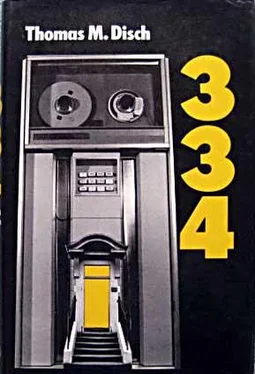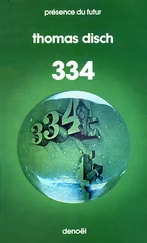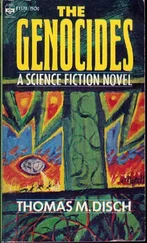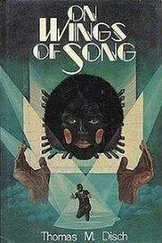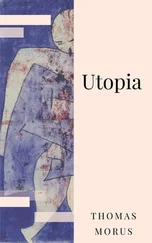Cece Benn, in 1438, was the sweep for 11th Street for the block between First and Second Avenues, a concession good for twenty to thirty dollars a week in tips and scroungings plus a shower of goodies at Christmas. But the real beauty of the job was that since your earnings didn’t have to be declared to the MODICUM office, you lost none of your regular benefits. Cece had swept 11th Street since before the turn of the century, but now she was edging up to retirement and had decided to opt for a home.
Lottie had often stopped at the corner in decent weather to chat with Cece, but she’d never supposed the old woman had regarded these attentions as a sign of real friendship. When Cece hinted to her that she was considering letting her inherit the license Lottie was flabbergasted with gratitude.
“If you want it, that is,” Cece had added with a shy, small smile.
“If I want it! If I want it! Oh, Mrs. Benn!”
She went on wanting it for months, since Cece wasn’t about to forfeit a consideration like Christmas. Lottie tried not to let her high hopes affect the way she acted toward Cece. but she found it impossible not to be more actively cordial, to the extent eventually of running errands for her up to 1438 and back down to the street. Seeing how Cece’s apartment was done up, imagining what it must have cost, made her want that license more than ever. By December she was groveling.
Over the holidavs, Lottie was down with flu and a cold. When she was better, there were new people in 1438, and Mrs. Levin, from 1726, was out on the corner with the broom and the cup. Lottie found out later from her mother, who had heard it from Leda Holt that Mrs. Levin had paid Cece six hundred dollars for her license.
She could never pass Mrs. Levin on the street without feeling half-sick with the sense of what she had lost. For thirty-three years she had kept herself above actually desiring a job. She had worked when she had had to work but she’d never let herself want to.
She had wanted Cece Benn’s job. She still did. She always would. She felt ruined.
20. A & P, continued (2021)
After their beers under the airport, Juan took Lottie to Wollman Rink and they skated for an hour. Around and around, waltzes, tangos, perfect delight. You could scarcely hear the music over the roar of the skates. Lottie left the rink with a skinned knee and feeling ten years younger.
“Isn’t that better than a museum?”
“It was wonderful.” She pulled him close to her and kissed the brown mole on bis neck.
He said “Hey.”
And then: “I’ve got to go to the hospital now.”
“Already?”
“What do you mean already? It’s eleven o’clock. You want a ride downtown?”
Juan’s motive in going somewhere was so he could drive there and then drive back. He was devoted to his car and Lottie pretended she was too. Instead of telling the simple truth that she wanted to go back to the museum by herself, she said, “I’d love to go for a ride, but not if it’s only as far as the hospital. Then I’d have nowhere to go but home. No, I’ll just plop down on a bench.”
Juan went off, satisfied, and she deposited the butt of the souvenir carrot in a trash bin. Then through a side entrance behind the Egyptian temple (where she’d been led to worship the mummies and basalt gods in second, fourth, seventh, and ninth grades) into the museum.
A cast of thousands was enjoying the postcards, taking them out of the racks, looking at them, putting them back in the racks. Lottie joined. Faces, trees, people in costumes, the sea, Jesus and Mary, a glass bowl, a farm, stripes and dots, but nowhere a card showing the replica of the A & P. She had to ask, and a girl with braces on her teeth showed her where there were several hidden away. Lottie bought one that showed aisles disappearing at the horizon.
“Wait!” said the girl with braces, as she was walking away. She thought she’d had it then, but it had only been to give her the receipt for twenty-five cents.
Up in the park, in a baffle away from the field, she printed on the message side: “I Was here today + I Thout this woud bring back the Old Times for you.” Only then did she consider who she’d send it to. Her grandfather was dead, and no one else she could think of was old enough to remember anything so far back. Finally she addressed it to her mother, adding to the message: “I never pass throuh Elizebeth without Thinking of you.”
Then she emptied the other postcards out of her purse—a set of holes, a face, a bouquet, a saint, a fancy chest-of-drawers, an old dress, another face, people working out of doors, some squiggles, a stone coffin, a table covered with more faces. Eleven in all. Worth, she jotted the figures on the back of the card with the coffin—$2.75. A bit of shoplifting always cheered her up.
She decided that the bouquet, “Irises,” was the nicest and addressed it to Juan: Juan Martinez Abingden Garage 312 Perry St. New York 10014.
It wasn’t because he disliked Lottie and his offspring that he wasn’t regular with his weekly dues. It was just that Princess Cass ate up his money before he could pay it out, Princess Cass being his dream on wheels, a virginal ’15 replica of the last great muscle car, Chevy’s ’79 Vega Fascination. About the neck of his little beauty he had hung five years of sweat and tears: punched out power with all suitable goodies; a ’69 vintage Weber clutch with Jag floorbox and Jag universals; leather insides; and the shell and glory of her was seven swarthy per-spectivized overlays with a full five-inch apparent depth of field. Just touching her was an act of love. And when it moved? Brm brm? You came.
Princess Cass resided on the third floor of the Abingdon Garage on Perry Street, and as the monthly rent plus tax, plus tax, was more than he would have to pay at a hotel, Juan lived there with, and in, the Princess. Besides cars that were just parked or buried at the Abingdon, there were three other members of the faith: a Jap ad man in a newish Rolls Electric. “Gramps Gardiner in a self-assembled Uglicar that wasn’t much more, poor slut, than a mobile bed; and, stranger than custom, a Hillman Minx from way back and with zero modifications, a jewel belonging to Liz Kreiner, who had inherited it from her father Max.
Juan loved Lottie. He did love Lottie, but what he felt for Princess Cass went beyond love—it was loyalty. It went beyond loyalty—it was symbiosis.
(“Symbiosis” being what it said in little gold letters on the fender of the Jap junior executive’s Rolls.) A car represented, in a way that Lottie would never understand for all her crooning and her protests, a way of life. Because if she had understood, she wouldn’t have addressed her dumb card in care of the Abingdon. A blurry mess about some dumb flower that was probably extinct!
He didn’t worry about an inspection, but the Abingdon’s owners had shit-fits when anyone used the place as an address, and he didn’t want to see the Princess sleeping on the street.
If Princess Cass was his pride, she was secretly also his shame. Since eighty per cent of his income was extra-legal, he had to buy her basic necessities—gas, oil, and glass fiber—on the black market, and there was never enough, despite his economies in every other direction. Five nights out of seven she had to stay indoors, and Juan would usually stay there with her, puttering and polishing, or reading poems, or sharpening his brains on Liz Kreiner’s chessboard, anything rather than have some smart-ass ask, “Hey. Romeo, where’s the royal lady?”
The other two nights justified any suffering. The very best and happiest times were when he met someone who could appreciate largeness and they’d set off down the turnpike. All through the night, not stopping except to fill the tank, on and on and on and on. That was colossal but it wasn’t something he could do all the time, or even with the same someone again. Inevitably they would want to know more and he couldn’t bear to admit that this was it—the Princess, himself, and those lovely white flashes coming down the center of the road. All. Once they found out, the pity started flowing, and Juan had no defenses against pity.
Читать дальше
